|
|
 |
|
| |
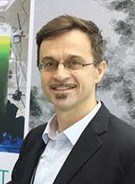 |
Barth F. Smets, PhD, Professor of Environmental Microbiology, Department of Environmental Engineering, Technical University of Denmark, Denmark
Session: Engineered Systems
Title: Abundance, diversity, and activity of comammox Nitrospira in the groundwater-fed biofilters.
The central tenet of the Smets lab is Microbial Resource Management & Engineering: the bridge between environmental engineering and microbial ecology. By using both advanced experimental (microscopic, molecular, - omic) tools as well as computational (agent and continuum models) approaches, we study fundamental and applied microbial ecological questions, with a focus on mixed microbial communities within environmental engineering application. We apply these approaches to a wide range of research topics: new biotechnological processes for water purification and used water treatment; the engineered nitrogen cycle: applications and fundamentals with focus on autotrophic processes, laughing gas, anammox processes; link between community dynamics and system performance and stability; bacterial adhesion & biofilm formation; bioelectrochemical systems, horizontal gene transfer in microbial communities and the fate of ARGs; mathematical modeling of microbial processes and interactions; new biofilm/bioaggregate based reactors; the new wastewater management paradigm. |
| |
|
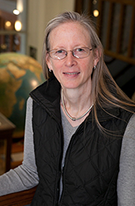 |
Bess B. Ward, PhD, William J. Sinclair Professor of Geosciences and the Princeton Environmental Institute. Chair, Department of Geosciences, Princeton University, USA
Welcoming Session
Title: Nitrite Oxidizing Bacteria: Gatekeepers of fixed nitrogen in the ocean.
• Professor Ward is a founding member of the Nitrification Network and the ICoN series. A Fellow of the American Academy of Microbiology, Ward has also been honored with a Fellowship in the American Geophysical Union and the American Academy of Arts and Sciences award. she received the G. Evelyn Hutchinson Medal from the American Society of Limnology and Oceanography making her the first women and the youngest person ever to receive such an award. In 2012, Ward was honored by The American Society for Microbiology (ASM) with the Procter & Gamble Award in Applied and Environmental Microbiology. Ward’s research focuses on the marine and global nitrogen cycle, using molecular biological investigations of marine bacteria and bacterial processes. Major and continuing themes in her work are aerobic (nitrification) and anaerobic (anammox) ammonia oxidation, and denitrification, topics that have seen many important developments in the last decade. Ward continues to work on nitrogen cycling in low oxygen regions of the world ocean. Her other studies include methane oxidation and N utilization by phytoplankton. Her signature approach is to combine biogeochemical approaches, typified by the use of stable isotopes to quantify the rates of nitrogen cycle processes, with molecular biological methods in order to link the rates of important transformations with the microbes that are responsible for them. Ward’s approach has been to simultaneously quantify the relevant fluxes using tracer techniques and the diversity and distribution of the operative microorganisms and functional enzymes. Her results have played a central role in forging our present understanding of the marine N cycle. |
|
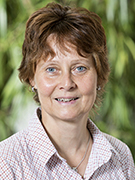 |
Eva Spieck, PhD, Group Leader & Assistant Professor, Division of Microbiology and Biotechnology, Hamburg University, Germany
Session: New physiologies, new organisms, new interactions
Title: Thermophilic nitrite oxidation: A complex community of novel bacteria.
Biological oxidation of ammonia to nitrite and further to nitrate has an immense impact for the functioning of the nitrogen cycle in natural and man-made ecosystems. The Spieck group is interested in studying the diversity of nitrifying microorganisms in moderate and extreme environments by using cultivation-dependent and molecular cultivation-independent methods. A signature goal of the Spieck group is the selective enrichment of novel nitrite oxidizing microorganisms; in particular, from geothermal settings. The Spieck lab has successfully isolated numerous typical and unusual N-cycle bacteria and Thaumarchaeota from diverse habitats and subjected their genomes to sequencing followed by in silico annotation and analysis as well as physiological and kinetic experiments with pure cultures. Another focus of the Lab is the development of applications to employ marine microalgae for the management of heterotrophic and nitrifying microbial communities recirculating aquaculture plants to establish nitrifying biofilms for larval rearing systems. |
|
 |
Holger Daims, PhD, Professor, Department of Microbiology & Ecosystem Science, Division of Microbial Ecology, University of Vienna, Austria.
Welcoming Session
Title: Nitrification: A bag full of surprises.
Nitrification is the primary biological source of nitrate, an important N source for many microorganisms and plants, a main electron acceptor for anaerobic respiration, and thus an essential process of the biogeochemical nitrogen (N) cycle. Being a key process of biological wastewater treatment, nitrification is highly important for protecting our environment from anthropogenic pollution. On the other hand, nitrification contributes to N losses from soils and thus it negatively affects the efficiency of fertilization in agriculture. Nitrification is carried out by ammonia-oxidizing bacteria (AOB) and archaea (AOA), complete ammonia oxidizers (comammox), and nitrite-oxidizing bacteria (NOB). The Daims group investigates the biology and evolution of the nitrifying microorganisms, with focus on comammox and NOB. The Daims lab is leading in cultivating nitrifying microbes and pertinent experimentation with pure and enrichment cultures of these slow-growing organisms. Since most nitrifiers are yet uncultured, many studies rely on a battery of cultivation-independent molecular and isotope techniques as well as “omics” approaches. |
|
 |
James Prosser, PhD, Professor, School of Biological Sciences, University of Aberdeen, UK
Session: Evolution & Ecology
Title: Half a century of nitrification research: advances, revolutions, mistakes and lessons.
James Prosser is a microbial ecologist who has made significant contributions to our understanding of the diversity and ecosystem function of microorganisms in natural environments. He is a Fellow of the Royal Society, Fellow of the Royal Society of Edinburgh, Fellow of the Royal Society for Biology, and Fellow of the American Academy of Microbiology. A major focus of his research has been the ecology of soil ammonia oxidising bacteria and archaea, which significantly reduce the efficiency of nitrogen fertilisers and generate greenhouse gases. His research has determined links between the remarkably high diversity of soil ammonia oxidisers and their ecosystem function and he has demonstrated niche specialisation and differentiation in bacterial and archaeal ammonia oxidisers. Jim’s research exploits laboratory experimental systems to test ecological concepts and he has developed molecular techniques for characterisation of the diversity and activities of complex communities of microorganisms, most of which cannot be cultivated. In 2013, he was made an officer of the Most Excellent Order of the British Empire for services to environmental science.
|
|
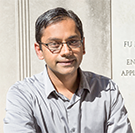 |
Kartik Chandran, PhD, Professor, Department of Earth and Environmental Engineering, Columbia University, USA.
Session: Biochemistry and Biomarkers
Title: Interrogating the function and activity of N-cycle transformations in mixed community black-boxes.
Kartik Chandran is a Fellow and Trustee of the Water Environment Federation, the recipient of the 2010 Water Environment Research Foundation (WERF) Paul Busch Award, the recipient of a Bill & Melinda Gates Foundation grant to develop a transformative new model for providing potable water and sanitation in Africa, and the recipient of the “genius award” from the John D. and Catherine T. MacArthur Foundation (MacArthur Fellows Program). He is an invited Participant in the China America Frontiers of Engineering program of the US National Academy of Engineering. The Chandran lab primarily works on the interface between environmental molecular microbiology, environmental biotechnology and environmental engineering. The focus of his research is on elucidating the molecular microbial ecology and metabolic pathways of the microbial nitrogen cycle. Applications of his work have ranged from energy and resource efficient treatment of nitrogen containing wastewater streams, development and implementation of sustainable approaches to sanitation to novel models for resource recovery. By integrating microbial ecology, molecular biology and engineering, the Chandran lab works on developing technology that will transform wastewater from a troublesome pollutant to a valuable resource.
|
|
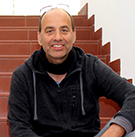 |
Michael Wagner, PhD, Dr. h.c., Professor, Department of Microbiology & Ecosystem Science and Centre for Microbiology & Environmental Systems Science, University of Vienna, Austria
Session: Evolution and Ecology
Title: Nitrification 2.0. Where do we go from here?
Professor Michael Wagner is the Head of the Centre for Microbiology & Environmental Systems Science, which was founded in 2019 as the 20th faculty of the University of Vienna, Austria. The Centre for Microbiology and Environmental Systems Science brings together 15 working groups with more than 150 researchers from 30 countries, which focus on understanding the role of microbiomes in the environment and for human health.
Professor Wagner served as President of the International Society for Microbial Ecology (ISME) from 2012-2014 and was senior editor for the leading journals Environmental Microbiology and the ISME Journal. He has been recognized as a Highly Cited Researcher from 2014 – 2018 (http://highlycited.com) and is an Elected Member of the European Molecular Biology Organisation (EMBO) (2017), Full Member of the Austrian Academy of Sciences (2016), Einstein Professor of the Chinese Academy of Sciences (2014), Member of the American Academy of Microbiology (2013), Elected Member of the German National Academy of Sciences (Leopoldina) (2009). He has received several awards including the Wittgenstein award 2019 of the Austrian Science Fund (FWF) on behalf of the Austrian Ministry for Science (1.5 Mio €), which is the most prestigious science award in Austria. Furthermore, he is the winner of the Jim Tiedje Award for his lifetime achievements of the International Society for Microbial Ecology (ISME) and of the 2015 Schrödinger Prize of the Austrian Academy of Sciences (highest award of the Austrian Academy). He has received an Advanced Grant of the European Research Council (ERC) in 2011.
The Wagner group is interested in all aspects of nitrification with a particular focus on the biology of ammonia-oxidizing archaea and bacteria as well as on complete nitrifiers of the genus Nitrospira (Comammox). Furthermore, the Wagner group continuously develop innovative Raman microspectroscopy and NanoSIMS-based single cell tools for investigating the identity and function of individual microbial cells within complex microbiomes.
|
|
 |
Nianzhi Jiao, Nianzhi Jiao, PhD, Professor, College of Ocean and Earth Sciences, State Key
Lab of Marine Environmental Science, and Institute of Marine Microbes and
Ecospheres, Xiamen University, China
Closing Session
Title: Influence of nitrogen on carbon sequestration in the ocean
Prof. Nianzhi Jiao, Fellow of Chinese Academy of Sciences (CAS), Deputy Director of the 16th Standing Committee of the Division of Earth Sciences; Fellow of The World Academy of Sciences (TWAS) for the advancement of science in developing countries; Fellow of the American Academy of Microbiology (AAM); Cheung Kong Chair Professor; Chair of PICES-ICES joint working group (WG 33).
Prof. Jiao majored in Aquatic Ecology and Marine Environmental Sciences. He has more than 300 publications including more than 240 SCI research papers in English such as Science, Nature and its series, PNAS, ISME-J, etc. Based on his long-term research and collaborations with international colleagues, Prof. Jiao proposed a new concept on carbon sequestration in the ocean, the Microbial Carbon Pump (MCP, Nature Reviews Microbiology), MCP was commented by Science as “The invisible hand behind a vast carbon reservoir”, and as “research hot spot” by peers in the literature. The Scientific Committee on Oceanic Research (SCOR) set a Working Group on MCP (SCOR-WG134), and Science published a special booklet on MCP. Prof. Jiao has founded a new permanent forum on Ocean Biogeochemistry at the Gordon Research Conferences (GRC).
Prof. Jiao has obtained “National Natural Science Award (Silver Medal)” by the State Council of China (first contributor) twice (2006, 2015), “Certificate of Merit” of the First “National Innovation Award” (2017).
|
| |
|
|
|
|
|
| |
|